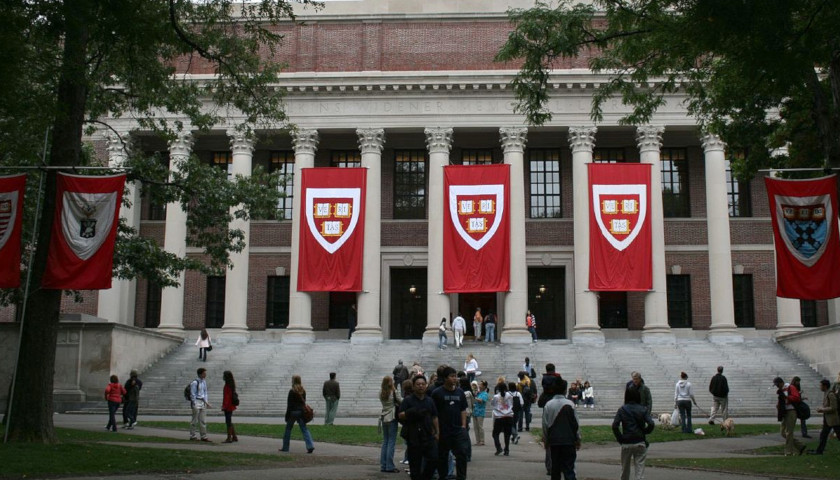by Michael B. Poliakoff and Steven McGuire
The donor revolts at the University of Pennsylvania, Harvard University, and elsewhere are the long-overdue wake up calls that their faculty and administrators needed. The overwhelming majority of politically progressive faculty and administrators have long guarded their right to advance their cherished political causes inside and outside the classroom, while punishment has awaited those who challenge the shibboleths. Instead of the free exchange of ideas and the intellectual capaciousness that ultimately advance social justice, it is now clearer than ever that it is not social justice they have fostered but mindless ideology and hate.
In stunning irony, the leadership of so many of the nation’s top colleges and universities, initially unable to give a full-throated condemnation of a terrorist attack on Israeli civilians of monstrous savagery, miraculously discovered institutional neutrality and murmured effetely instead. In response to the backlash, they appeal to free expression, but their campuses have only what Penn donor and alumnus Clifford Asness has called “asymmetrical free speech where some have it and some don’t.”
While Penn Carey Law School’s eminent Professor Amy Wax is placed under investigation with serious threat of termination for alleged racial insensitivity, a professor who posted the logo of the military wing of Hamas on Facebook days after that terrorist organization’s horrific attack on Israeli civilians receives nothing more than an email.
Roger Waters, a notorious antisemite, is allowed to speak on Penn’s campus, but young women forced to share a locker room with a biological male are told, “Don’t talk to the media. You will regret it.”
At Harvard, the same President Claudine Gay who was instrumental in punishing gifted African American economist Roland Fryer, who dared to advance a data-driven challenge to the meme of racist policing, says pro-Hamas students will neither be punished nor sanctioned. Carole Hooven, who was canceled for stating a biological fact, might disagree with President Gay’s claim that Harvard “embraces a commitment to free expression.”
When the American Association of University Professors (AAUP) first formulated the principles of academic freedom in its 1915 Declaration, the primary concern was undue pressure on faculty from donors and trustees. Times have changed. Now the greatest threat to free expression comes from within the institutions themselves. Hiring aims at ideological self-replication, and heterodox thinkers who somehow sneak in are punished as heretics if they speak up.
No one is surprised that these schools are ideological silos tilted to the left, but the numbers are still shocking. Only 3% of faculty at Harvard identify as conservative. An astounding 99.7% of political donations made by Penn faculty in 2021-22 went to Democrats.
Our institutions of higher education need reform, and the people inside them have shown little interest in starting the process. Many are in complete denial that anything needs to change. The American people think differently: Only 36% (19% of Republicans) say they have confidence in American higher education.
There are some internal signs of hope, such as the Council on Academic Freedom at Harvard, but the broader pattern among faculty and administrators is obstinate, self-righteous resistance. Normally, faculty complain that no one reads their work. Now that people are paying attention, the faculty senate tri-chairs at Penn complain that “freedom of thought, inquiry, and speech … are being threatened by individuals outside of the University who are surveilling both faculty and students in an effort to intimidate them and inhibit their academic freedom.” Where were these faculty leaders when dozens of their colleagues and students demanded sanctions against Amy Wax for daring to write that bourgeois values such as being “neighborly, civic-minded, and charitable” are drivers of success? They have been silent while Penn’s tribunal weighs terminating this distinguished professor, who has argued 15 cases before the Supreme Court and received Penn’s highest award for teaching excellence.
Unwilling to defend academic freedom when it mattered, the faculty senate speaks now only to insult its donors and alumni. “Let us be clear,” the tri-chairs write: “academic freedom is an essential component of a world-class university and is not a commodity that can be bought or sold by those who seek to use their pocketbooks to shape our mission.” What gratitude! Not to be outdone, the Penn chapter of the AAUP, also silent on matters of academic freedom in recent years, complains about “donors directly contacting academic programs that rely on them financially” and says trustees and donors “have attempted to abuse the power that comes with wealth.” Is Penn holding a competition to see who can chase away the most donors?
The disingenuous administrators and faculty who run our elite academic institutions have had their chance to govern autonomously. We see where they have led us. Now is a time for trustees, donors, and alumni to intervene and give these institutions the gift of reform they so urgently need.
– – –
Michael B. Poliakoff is the president of the American Council of Trustees and Alumni. Steven McGuire is the Paul & Karen Levy Fellow in Campus Freedom at the American Council of Trustees and Alumni.
Photo “Harvard University” by Joseph Williams. CC BY 2.0.








